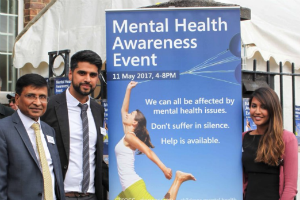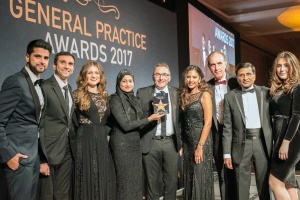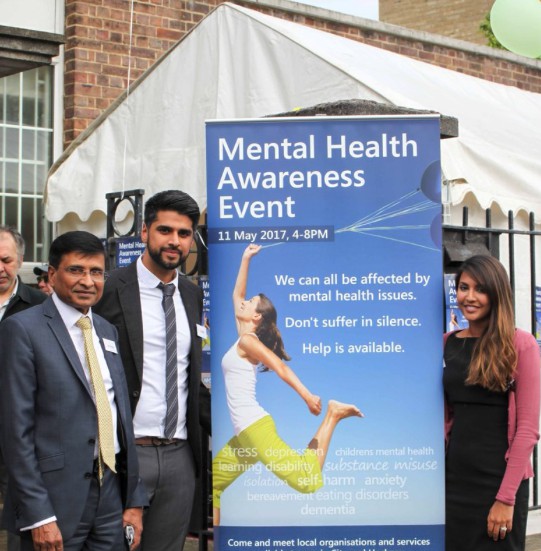How we transformed our practice to meet changing patient needs

Richmond Road Medical Centre won ‘General Practice Team of the Year’ at last year’s prestigious General Practice Awards, in recognition of the team’s major positive impact on patient care both in the practice and their local area. Partner Dr Gopal Mehta describes how he and the team transformed the practice.
Profile: Richmond Road Medical Centre

Richmond Road Medical Centre is an inner-city practice in the borough of Hackney, east London. It is a teaching and training practice, with three GP partners and one salaried GP, one practice nurse, two trainee practice nurses and seven administrative staff.
We have over 6,000 patients, from ethnically diverse backgrounds, and a larger than average number of patients aged 25-40. The population has a high prevalence of long-term conditions such as diabetes.
The problem we faced
The practice has always strived to provide a high performing, efficient and safe practice for our patients. In recent years, we have experienced an influx of young adults, presenting with increasing mental health needs such as severe depression/anxiety, borderline personality disorder, and medically unexplained symptoms. In 2016, our practice became acutely aware that our systems and processes needed to be adapted in order to meet these changing needs appropriately.
What we did
As a team, we invested a significant amount of time and energy into tailoring our services to better meet the demands of our population. Through this journey, we transformed from a being a regular GP practice to being a centre of innovation, access and opportunity, with patient needs at the forefront.
Some key changes we made are outlined as follows.
48-hour access
In response to increasing demand for a more responsive service, we set up a system to ensure all patients are seen within 48 hours of making contact with the surgery. Whether they need just advice or reassurance, or a face-to-face appointment, our patients can speak directly to the GP if required.
Digital technology
We carried out a promotional ‘online access’ campaign, with balloons and banners in the waiting room, along with stations where patients could register themselves online.
We also had to think creatively to keep patients engaged, leading to our use of social media as a portal to encourage patient involvement. The practice is now extremely active on both Instagram and Facebook. (Instagram, @richmondroadmedicalcentre, Facebook @richmondroadmedicalcentre).
New mental health services
In May 2017, the practice hosted the first ever practice-based Mental Health Awareness event which was open to the entire borough. Over 30 exhibitors attended, creating awareness of services available to patients.
To strive to offer our patients more appropriate solutions for their health needs, in 2017 the practice also established in-house, practice based yoga and mindfulness classes, the first such offering in our CCG.
Workforce development
We also looked at ways we could involve the whole practice team in offering a more joined up service, with training and support for individual staff. This included collaborative training, where admin staff triaged morning calls with support from a GP.
In addition, we introduced a model where the entire staff team contributes to health outcomes target achievement. This involved regular training, clinical and non-clinical buddies and regular progress reviews. Each member of the admin team is paired with a clinician in a particular clinical area, such as diabetes; the two work together to ensure targets are achieved – so for example, a non-clinical member of the team books blood tests and the clinician checks results. Then they meet together weekly to discuss progress and then fortnightly with the wider team to help each other and give advice where necessary – so the entire practice achieves all together.
Challenges
Investing time over and above our clinical work and commitments to meetings was the biggest challenge. This included teaching, training and testing out approaches as we went along.
Shared learning was key – telling people what you do and how you do it, continuously teaching them – is vital and saves them from making the early mistakes we may have made.
Keeping up morale was tough early on. Now we can see the benefits of devoting time to this, but at the time it could feel difficult to instil confidence to keep going – to combat this we set out mini-targets, for example, who can register most patients online, with mini awards like chocolates. We also organised many team events, such as bowling and team dinners, to mark bigger achievements and say thank you to staff. This helped boost morale and gave the team a huge drive.
Results
Since the introduction of the new access model, GP workload has reduced, our staff report that they feel completely supported and our patient satisfaction rates have never been higher. The practice now guarantees appointments within 48 hours and we have very high patient satisfaction rates, with 96% of patients extremely or very likely to recommend our practice on the Friends and Family test, while 100% of patients questioned rated their experience of making an appointment ‘very good’.
In 2017, our practice had the fastest rate of growth for patients registering online across the CCG; we have gone from having the lowest to the highest number of patients registered.

Our mental health awareness event was a huge success, visited by over 400 patients and local colleagues, showcasing an array of services patients had been previously unaware of. Through offering the yoga and mindfulness services, patients are seeing the change within the practice and now seeking help. In addition, new patients are registering especially because of our work on awareness.
Staff feedback and regular appraisal show morale has improved considerably. We have retained our workforce and we are often referred to as the ‘Richmond Road family’. The daily GP triage alongside the reception team has created a unique opportunity for teaching and training and has become a two-way learning process, so that whilst administrative staff can observe and learn from GP management of calls, GPs can also reflect upon the nature of demands placed upon receptionists and modify processes accordingly. Happier patients result in reduced pressures on the front line. This process has gone a long way towards building strong relationships between the entire practice team.
The awareness days also created opportunities for staff to learn new skills, liaise with new people and host events, contributing significantly towards professional development and building upon team morale.
Throughout the transition we have maintained our performance at the highest level for health outcomes. The practice achieved amongst the highest QOF performance both locally and nationally for 2016/17 with 98.9% of available QOF points and 100% achievement in clinical domains; we also achieved amongst the highest performance on the City and Hackney primary care dashboard – a ‘super QOF’ with extended targets for long-term conditions – and were rated outstanding in our latest CQC report for management of long-term conditions.
The future
We are extremely proud of what we have achieved. Whilst remaining amongst the highest clinical outcome achievers both locally and nationally, we have pioneered a 48-hour access model, fully embraced digital technology and revolutionised the awareness and management of mental health within the entire borough.
Our 48-hour access model has led to the development of a model of access called ‘Patient First’, whereby patients can address health concerns or discuss queries with our GPs and administrative staff without coming to the surgery. The model is now being implemented across practices in our CCG, with the Richmond Road team leading entirely on delivery, from logistics to team training, to ensure successful outcomes.
Following the success of our awareness events, I am now leading on the first City and Hackney CCG neighbourhood pilot to create a ‘one-stop’ mental health service to ensure patients get the most appropriate care for their needs.
For practices facing similar challenges we would emphasise that it is important to create the feeling of ‘one team’ – a team that works together and delivers together with the same vision. We now have this at Richmond Road in every aspect of what we do – it’s extremely powerful.









